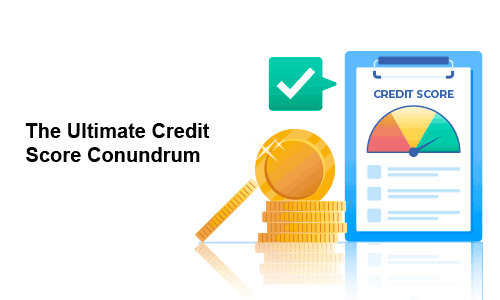Congrats on Your First Job! Let’s Jumpstart Your Credit Score Journey Together!
You just landed your first job — your first paycheck is in your hands. The excitement is real!
However, amidst all the celebrations and new experiences, you may just overlook one thing — your credit score. It’s not the most glamorous topic, but trust us: it is one of the most important things you will need to manage as you step into your financial independence.
So, how can you boost your credit score and set yourself up for a financially healthy future?
Don't worry, we have got you covered. From paying your bills on time to smart strategies for using debt, let's dive into the essential credit moves you need to make right now.
Ready? Let's get started on building that credit score!
Pay Your Bills on Time – The #1 Rule to Win the Credit Game
Think of your bills as that annoyingly punctual houseguest who visits every month without fail.
Nevertheless, it’s important to deal with this guest! Paying them on time not only avoids late fees but also significantly improves your credit Score.
Your payment history accounts for over a third of your credit score.
Yes, it is THAT important!
|
Did You Know? Paying your utility and cell phone bills on time can also help build your credit history. Some service providers report your payment history to the credit bureau. |
Credit Cards are Your Friends – Use Them Wisely
No credit card yet?
No problem.
Banks often offer student credit cards to help you establish credit. If that is not an option, consider becoming an authorised user on a family member's credit card or getting a secured credit card.
In the case of a secured card, you will need to make a deposit as collateral.
|
Myth Box
|
Stay Under 20% — Master the Art of Credit Utilisation
Lenders don’t like to see you max out your credit limits. It is recommended to keep your credit usage below 20% of your available credit.
Also, regularly check your credit report for errors and stay informed about your credit status.
|
Did You Know? You have to pay a small fee to review your credit report. This can help you spot potential errors or fraud early. |
Start Small – Leverage Small Loans to Build Credit
Taking out a small personal loan or using a credit builder loan can help you establish your credit history.
The key, just like with any other loan, is to pay it back on time and in full to show lenders you are a reliable borrower.
|
Statistics Box Personal loans cannot be more than 20 times your salary value or total income. Moreover, the repayment period must not exceed 48 months. |
Old is Gold – Keep Your Oldest Credit Card Open
The length of your credit history affects your score.
Keeping your oldest credit card open, even if you don’t use it much, can benefit your credit score by showing a longer credit history.
|
Expert Quote — Parthiv Patnaik, a Dubai-based banker with an experience of more than 40 years in the industry He also adds that “[s]tarting early with responsible credit use can set you up for a healthy financial future.” |
Time to Thank Your Future Self
Congratulations, you have made it to the end of this guide!
Building a strong credit score from a young age can open doors for you financially and professionally. Developing good habits like paying your bills on time, using credit wisely, and monitoring your credit report will set you on the path to financial health.
So, take a moment to thank your future self.
By starting now, you are paving the way for a prosperous and secure financial future. Your efforts today will lead to financial freedom tomorrow.
Keep up the good work, stay informed, and watch your credit score — and opportunities — grow. Your future self will be grateful for the smart decisions you are making right now!
By: Nupur Jain

- Latest News & Update






